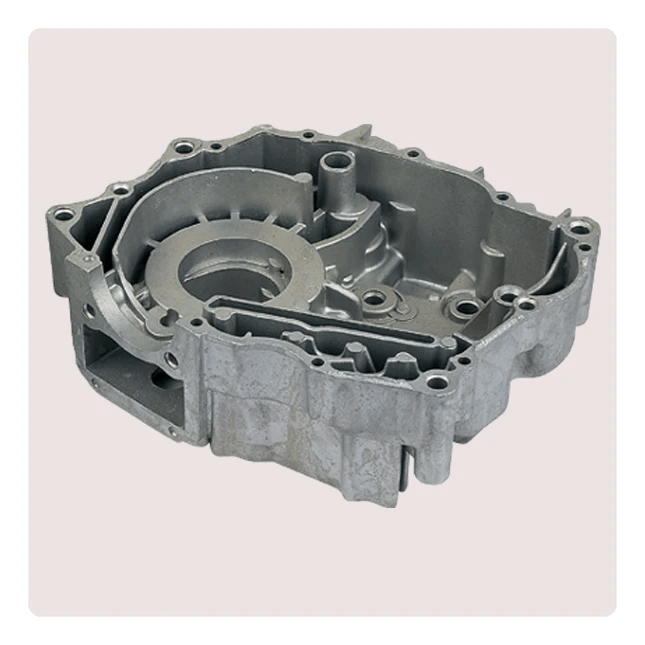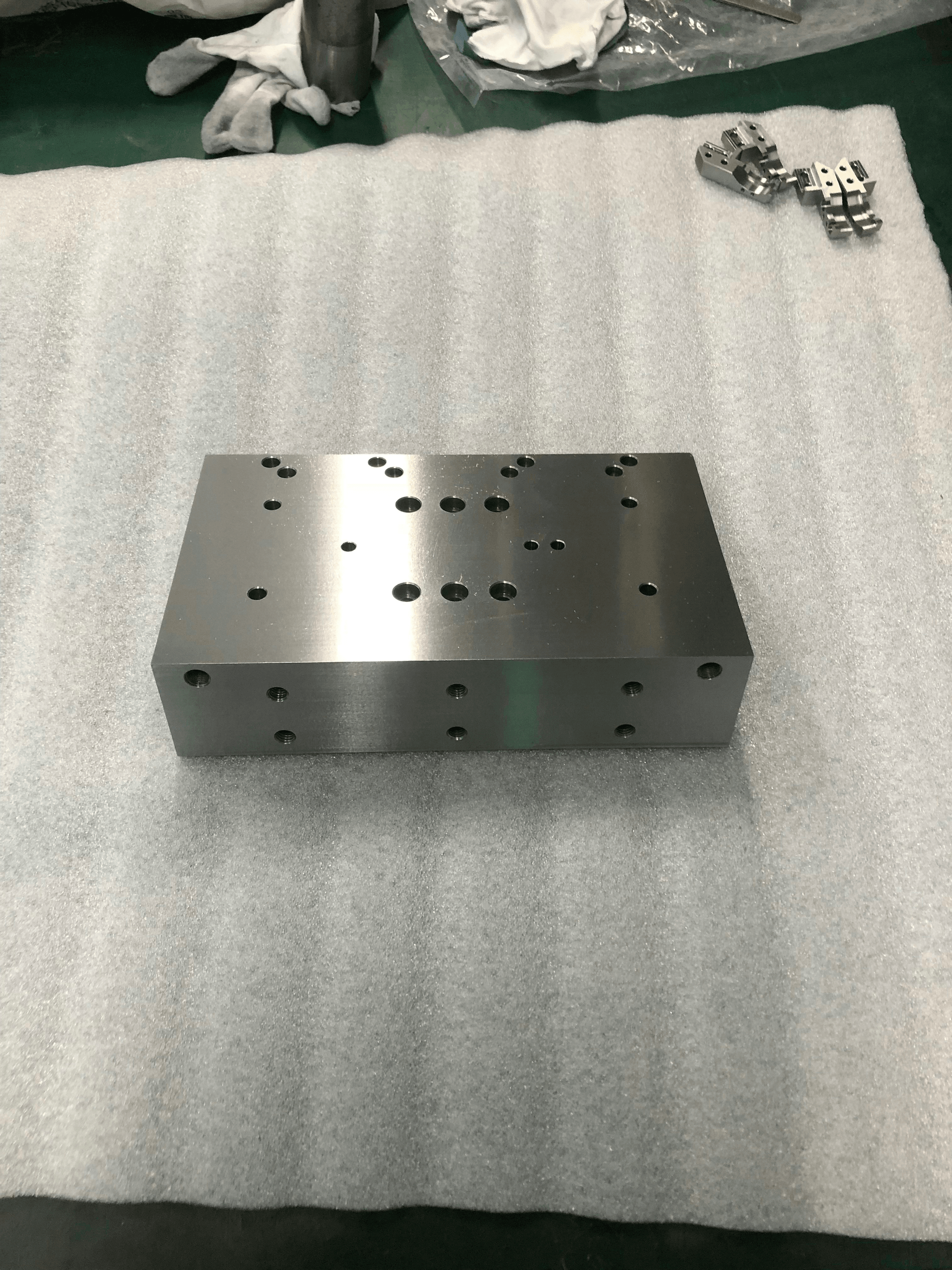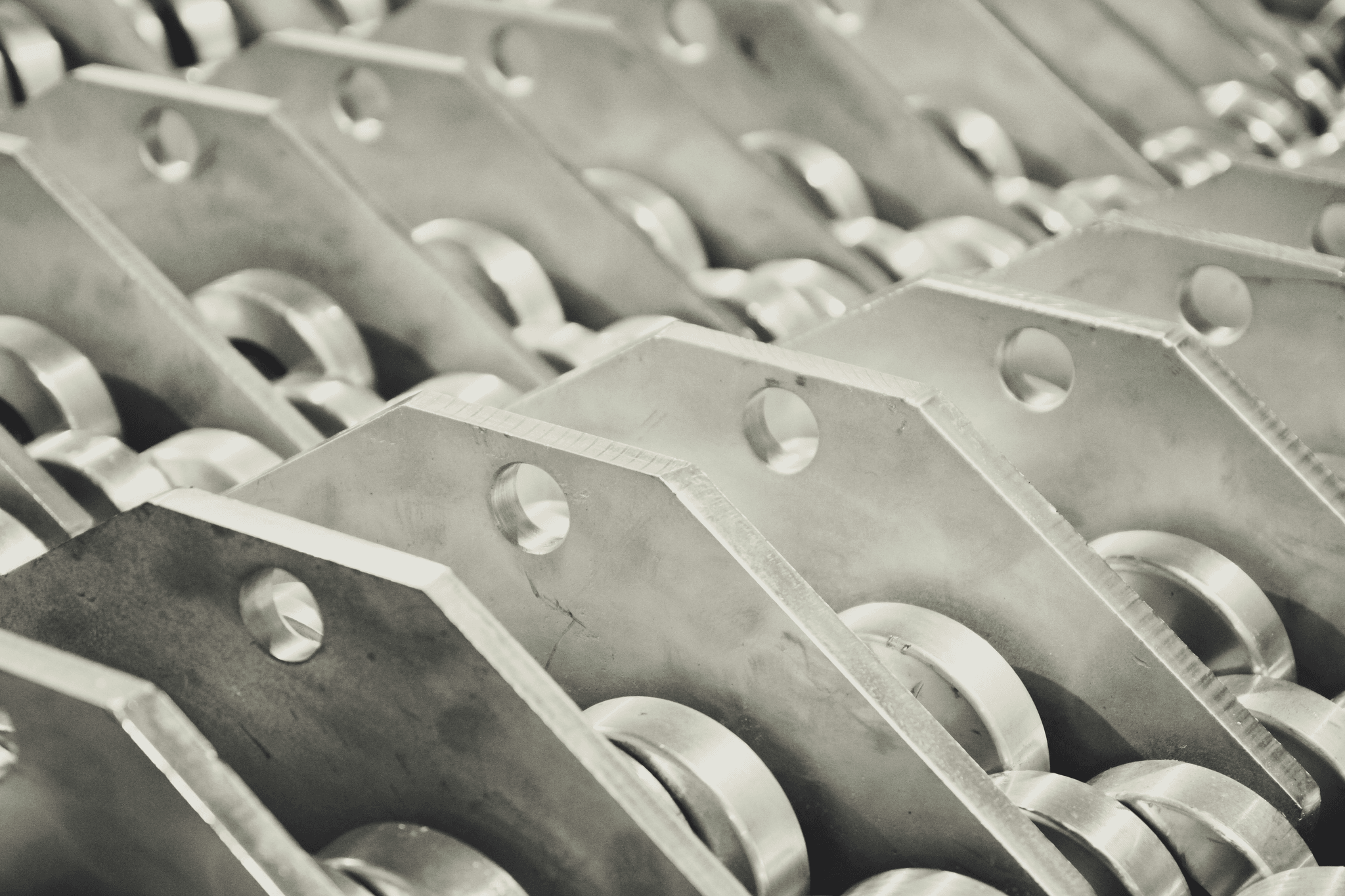Introduction

When it comes to manufacturing high-quality metal parts, die casting is a process that stands out for its efficiency and precision. Die casting involves forcing molten metal into a mold cavity under high pressure, resulting in complex shapes with excellent dimensional accuracy. Aluminum is a popular choice for die casting due to its lightweight properties, corrosion resistance, and high thermal conductivity. The strength of die cast aluminum makes it an ideal material for a wide range of applications, from automotive components to gas appliance parts.
Understanding Die Casting Process
The die casting process is a versatile method for producing engineered metal parts with high accuracy and smooth surface finishes. It involves the use of a die or mold cavity, which is filled with molten metal under extreme pressure to create the desired shape. This method is highly efficient and cost-effective, making it a preferred choice for mass production of metal components.
Properties of Aluminum
Aluminum boasts several desirable properties that make it an excellent choice for die casting. Its lightweight characteristics make it ideal for applications where weight reduction is crucial, such as in the automotive industry. Additionally, aluminum offers exceptional corrosion resistance, ensuring durability and longevity in various environments.
The Strength of Die Cast Aluminum
One of the key advantages of die cast aluminum is its impressive strength-to-weight ratio. This makes it an attractive option for applications where strength and durability are essential factors. Whether used in automotive components or gas appliance parts, die cast aluminum offers reliable performance and structural integrity.
The Die Casting Process

Die casting is a metal casting process that is characterized by forcing molten metal under high pressure into a mold cavity. This process is highly efficient and versatile, allowing for the production of a wide range of shapes and sizes with tight tolerances. Die casting is commonly used to create parts with complex geometries and thin walls, making it ideal for applications in various industries.
Overview of Die Casting
The die casting process begins with the creation of a die, or mold, which is typically made from hardened steel and precision-machined to form the desired shape of the part. The molten metal is then injected into the die cavity at high pressure, where it rapidly solidifies to form the final part. Once the part has cooled and solidified, the die is opened, and the part is ejected.
After the part is ejected, the die is then prepared for the next cycle of production. This involves cleaning any residual metal from the die cavity and applying lubricants to ensure smooth ejection of the next part. The precision and durability of the die casting mold are crucial to maintaining consistent quality and dimensional accuracy in the final parts. Any wear or damage to the mold can result in defects or variations in the parts, making regular maintenance and inspection of the molds essential for efficient production.
Importance of Die Casting Molds
The quality and precision of the die casting mold are crucial to ensuring consistent and high-quality parts. A well-designed die can help minimize defects such as porosity, shrinkage, and flash, resulting in parts that meet strict dimensional and structural requirements. At Ningbo Buttler Precision Machinery Co., Ltd., we specialize in creating high-quality die-casting molds that are engineered for cost-effective manufacturing while maximizing performance.
Furthermore, our team at Ningbo Buttler Precision Machinery Co., Ltd. understands the importance of smart part engineering for better designs. By utilizing advanced technology and innovative techniques, we are able to create die-casting molds that not only meet industry standards but also exceed expectations in terms of performance and durability. Our commitment to staying ahead of the curve in smart part engineering allows us to offer our clients cutting-edge solutions for their die casting needs.
Smart Part Engineering for Better Designs
Smart part engineering involves optimizing part designs to enhance performance while minimizing production costs. By leveraging innovative tooling designs and engineering expertise, manufacturers can achieve superior casting quality without the need for extensive secondary operations. At Ningbo Buttler Precision Machinery Co., Ltd., we offer an Engineering Design Review Process to help our clients optimize their new and existing parts at no cost.
Remember: how strong is cast aluminum? With our expertise in die-casting molds and smart part engineering solutions at Ningbo Buttler Precision Machinery Co., Ltd., we're committed to delivering superior quality aluminum castings for various industrial applications.
Aluminum Properties

Aluminum is known for its lightweight characteristics, making it an ideal material for various applications. Its low density allows for the production of strong and durable parts without adding unnecessary weight to the final product. The use of aluminum in die casting molds ensures that the resulting parts are not only robust but also lightweight, making them suitable for a wide range of industries.
Lightweight Characteristics
Aluminum's corrosion resistance is another key property that makes it a popular choice for die casting. The natural oxide layer that forms on the surface of aluminum provides excellent protection against corrosion, ensuring that parts remain durable and reliable even in harsh environments. This makes aluminum an excellent choice for outdoor applications or components exposed to moisture and other corrosive elements.
Corrosion Resistance
In addition to being lightweight and corrosion-resistant, aluminum also boasts high thermal conductivity. This means that it efficiently transfers heat, making it an excellent choice for components that require effective heat dissipation or thermal management. Whether used in automotive cooling systems or electronic devices, die-cast aluminum parts can effectively regulate temperature and prevent overheating. Furthermore, aluminum's high electrical conductivity makes it an ideal material for electronic components, allowing for efficient transmission of electricity without the risk of overheating or short-circuiting.
High Thermal Conductivity
By understanding the properties of aluminum such as its lightweight characteristics, corrosion resistance, and high thermal conductivity, manufacturers can leverage these advantages to produce high-quality die-cast parts with superior performance and durability.
Ningbo Buttler Precision Machinery Co., Ltd., with its expertise in die-casting molds and smart part engineering, plays a crucial role in maximizing the potential of aluminum properties for optimized part designs and manufacturing processes.
With their innovative tooling designs engineered for cost-effective manufacturing and their commitment to maximizing performance while minimizing the need for secondary operations, Buttler Precision Machinery is at the forefront of advancing the future of the die casting industry through their dedication to excellence.
Strength of Die Cast Aluminum

Aluminum is renowned for its exceptional strength, making it a popular choice for various industries. When comparing the strength of die cast aluminum to other materials, it consistently outperforms in terms of durability and resilience. Its high tensile strength and excellent resistance to corrosion make it an ideal material for demanding applications.
Comparing Strength to Other Materials
In comparison to other materials, die cast aluminum offers superior strength and durability. Its high tensile strength allows it to withstand heavy loads and harsh environmental conditions, making it an ideal choice for a wide range of industrial applications. The exceptional resilience of aluminum ensures that components made from this material have a longer lifespan compared to alternatives.
In addition to its exceptional strength and durability, die cast aluminum also offers a lightweight advantage, making it an attractive choice for the automotive industry. Its high strength-to-weight ratio allows for the production of lighter vehicles without sacrificing structural integrity, resulting in improved fuel efficiency and overall performance. This makes die cast aluminum an increasingly popular material for automotive components such as engine blocks, transmission cases, and structural parts.
Application in Automotive Industry
The automotive industry extensively utilizes die cast aluminum due to its remarkable strength and lightweight properties. From engine components to structural parts, aluminum casting die plays a crucial role in enhancing vehicle performance and fuel efficiency. Its ability to withstand extreme temperatures and harsh road conditions makes it an invaluable material for automotive manufacturers.
Furthermore, the use of die cast aluminum in the automotive industry has also led to advancements in safety features. The lightweight yet durable nature of aluminum casting die allows for the creation of impact-absorbing components, contributing to enhanced crash performance and occupant protection. Additionally, its corrosion resistance properties make it an ideal material for exterior body panels, ensuring longevity and maintaining vehicle aesthetics.
Impact on Gas Appliance Parts
Die cast aluminum has revolutionized the production of gas appliance parts by offering unmatched strength and reliability. From burner assemblies to valve components, alum cast parts provide superior performance and longevity in gas appliances. The corrosion resistance of aluminum ensures that gas appliance parts remain durable even in challenging environments.
The use of die cast aluminum in gas appliance parts also contributes to a more environmentally friendly production process. Aluminum is a highly recyclable material, allowing manufacturers to reduce their environmental impact by reusing scrap metal and minimizing waste. This focus on sustainability not only benefits the planet but also enhances the reputation of gas appliance companies as responsible and forward-thinking organizations. By choosing aluminum components, manufacturers can align themselves with eco-conscious consumers and demonstrate their commitment to reducing carbon footprints.
Furthermore, the lightweight nature of die cast aluminum gas appliance parts makes them easier to handle and install, reducing labor costs and assembly time. This benefit not only saves money for manufacturers but also provides convenience for consumers when it comes to replacing or repairing gas appliance components. Additionally, the ability of aluminum to conduct heat efficiently ensures that gas appliances operate at optimal performance, leading to energy savings and lower utility bills for end users.
Conclusion

When it comes to the advantages of die casting aluminum, its strength and durability are unmatched. The process of die casting allows for intricate designs and precise details, making it a top choice for various industries. Ningbo Buttler Precision Machinery Co., Ltd. has proven to be a leader in this field, offering smart part engineering and cost-effective manufacturing solutions. As the demand for high-quality aluminum castings continues to rise, the future of the die casting industry looks bright.
Advantages of Die Casting Aluminum
The strength of cast aluminum makes it an ideal choice for applications that require durability and reliability. Its lightweight properties also make it a preferred material in industries such as automotive and aerospace. Additionally, die casting allows for complex shapes and thin walls, providing manufacturers with more design flexibility.
Ningbo Buttler Precision Machinery Co., Ltd.
Ningbo Buttler Precision Machinery Co., Ltd. stands out as a leading provider of die-casting molds, aluminum and zinc castings, and innovative tooling designs. Their expertise in smart part engineering ensures that clients receive cost-effective manufacturing solutions without compromising on quality or performance.
Ningbo Buttler Precision Machinery Co., Ltd. has also made significant strides in sustainability within the die casting industry. By implementing eco-friendly practices and utilizing recyclable materials, they are contributing to a greener manufacturing process. This commitment to environmental responsibility not only benefits the planet but also aligns with the growing demand for sustainable production methods in various industries.
Future of Die Casting Industry
As technology continues to advance, the die casting industry is poised for significant growth. The demand for high-quality aluminum castings will only continue to rise, creating new opportunities for innovation and expansion within the industry. With the increasing focus on sustainable and eco-friendly manufacturing processes, die casting companies are investing in research and development to create more efficient and environmentally friendly production methods. This commitment to sustainability will not only attract environmentally conscious customers but also position die casting companies as leaders in the green manufacturing movement.

